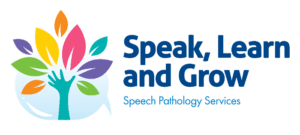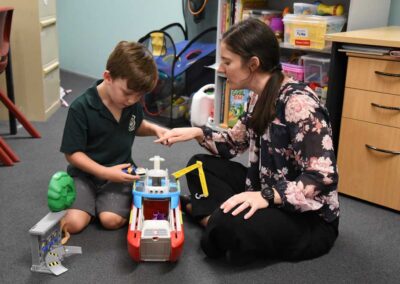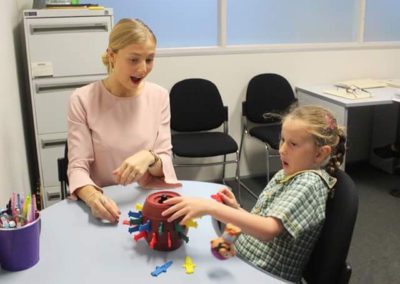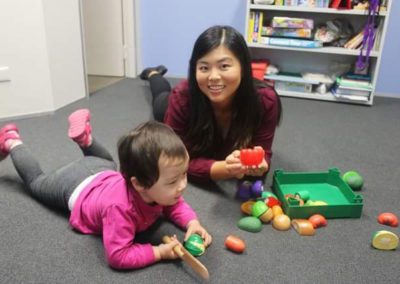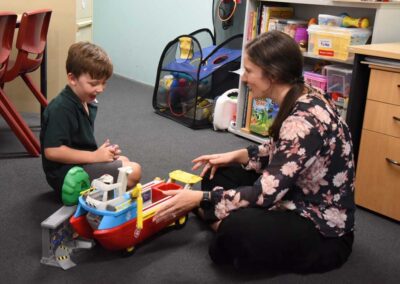We all know that supervision is essential in the field of Speech Pathology and if you’re an early career speechie, you probably explore a private
practice’s stance on supervision before accepting a new position. But what does effective supervision really look like? This insightful blog explores this critical facet of professional growth and outlines what good supervision should look like in a private practice. Let’s delve in:

1. Fostering Psychological Safety: At the heart of any effective supervision model within the field of speech pathology lies the concept of psychological safety. As a supervisee, you should feel comfortable and confident sharing your challenges, uncertainties, and even mistakes without fear of judgment. In a nurturing environment, both supervisor and supervisee understand that growth often emerges from honest conversations. This psychological safety paves the way for open dialogue, where learning flourishes, and self-improvement takes center stage.
2. Empowering the Supervisee to Take the Wheel: Effective supervision in a speech pathology private practice isn’t about the supervisor dictating every step; it’s about empowering the supervisee to drive their own learning journey. A supportive supervisor guides and facilitates rather than directs. They acknowledge that every supervisee brings unique experiences, insights, and learning styles to the table. By allowing you to steer your own development, the supervisor encourages a sense of ownership and accountability that leads to more profound growth.
3. Providing a Forum for Reflection: In the business of day to day clinical work, taking a moment to reflect can make all the difference. A good supervision model carves out space for reflection. Supervisees are encouraged to ponder their experiences, analyze their decisions, and evaluate the outcomes. This reflective process isn’t just about the clinical aspect; it also involves exploring emotions, doubts, and personal growth. Such reflective sessions enable you to fine-tune your approach, enriching the quality of care you provide.

4. Cultivating Lifelong Learning: The journey of learning doesn’t conclude with graduation; it’s a lifelong commitment. Effective supervision in a speech pathology private practice emphasises this truth. It’s about creating an atmosphere where the pursuit of knowledge is celebrated and where curiosity thrives. Through ongoing discussions, access to resources, and exposure to the latest research, supervision becomes a catalyst for continuous growth and innovation.
5. Tailoring the Approach to Individual Needs: Just as each client requires personalised interventions, each supervisee benefits from a tailored approach to supervision. Effective supervisors recognise that
you have unique strengths, areas for development, and learning preferences. They adapt their mentoring style to align with your needs, ensuring that the supervision process resonates with you on a personal
level.
6. Practicing Humility and Openness: Effective supervisors embody humility, acknowledging that there’s always room for improvement. They recognise that they, too, can learn from their supervisees. By fostering an environment of mutual respect and open dialogue, supervisors encourage supervisees to share their insights, opinions, and suggestions without hesitation. This humility promotes a collaborative atmosphere where everyone benefits from each other’s perspectives.

In Conclusion: Nurturing Growth through Effective Supervision
In the ever-evolving landscape of speech pathology, growth isn’t an option—it’s a necessity. Effective supervision in a private practice lays the groundwork for this growth by nurturing psychological safety, handing you the reins of your learning journey, providing space for reflection, fostering lifelong learning, and adapting to your individual needs.
Whether you’re a seasoned speech pathologist seeking guidance or an early career therapist stepping into the world of private practice, remember that effective supervision isn’t a one-size-fits-all formula. It’s a dynamic process that hinges on trust, collaboration, and a shared commitment to excellence.
As you embark on this journey of professional development, embrace the power of effective supervision—it’s your compass to becoming the best version of yourself in the realm of speech pathology.
Click HERE to find out more about supervision at Speak, Learn & Grow
